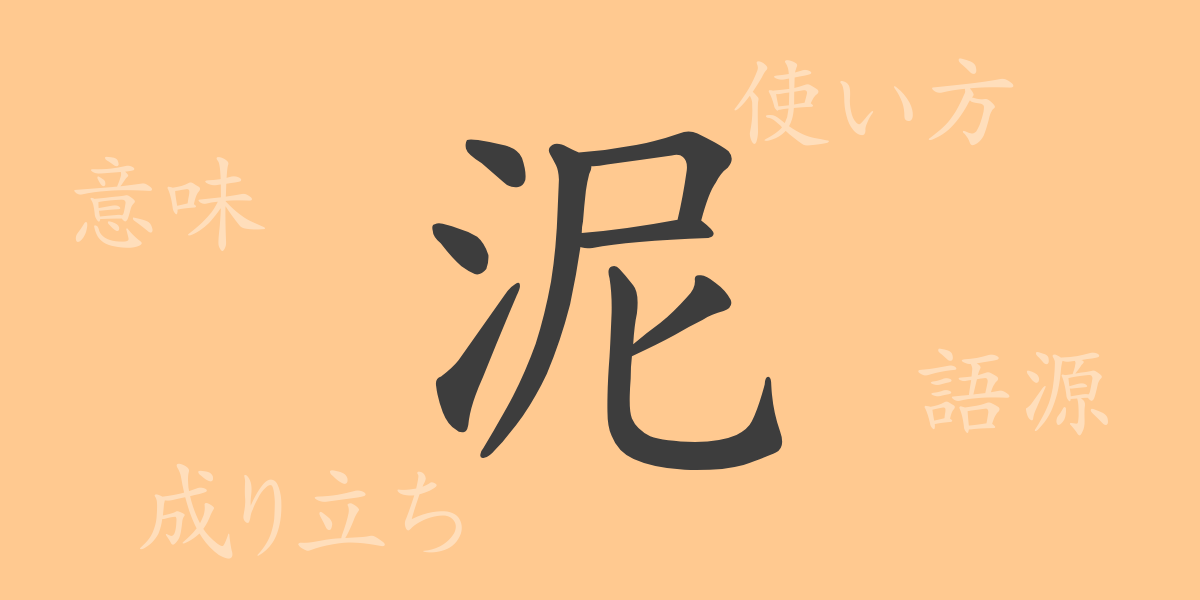Integral to Japanese culture and language, kanji have a history spanning over a millennium. Among these, the kanji ‘泥(デイ)’ is deeply embedded in our daily lives. This article explores the etymology, meanings, and usage of ‘泥’, and delves into the idioms and phrases associated with it, capturing the essence of this character.
Origins of ‘泥(デイ)’
The kanji ‘泥’ originated from a pictograph representing the mud at water’s edge in ancient China. It was used to depict the state of soil mixed with water—mud. Over time, its form evolved, settling into the current character ‘泥’, symbolizing both literal and figurative muddiness.
Meaning and Usage of ‘泥(デイ)’
‘泥’ refers to soft earth saturated with water. It is used in various contexts, such as tilling soil in agriculture or referring to clay in pottery. Metaphorically, it appears in phrases like ‘泥を塗る’, which means to smear with mud, symbolizing failure or disgrace.
Readings, Stroke Count, and Radical of ‘泥(デイ)’
The kanji ‘泥’ has specific readings and structural details:
- Readings: On’yomi (Sino-Japanese reading) is ‘デイ’, kun’yomi (native Japanese reading) is ‘どろ’.
- Stroke Count: ‘泥’ consists of 8 strokes.
- Radical: Its radical is ‘水’ (みず or さんずい), associated with water.
Phrases and Idioms Using ‘泥(デイ)’ and Their Meanings
The character ‘泥’ features in numerous idioms and proverbs, reflecting its rich connotations:
- 泥棒(どろぼう) – A thief or someone who steals.
- 泥沼(どろぬま) – A quagmire, used metaphorically to describe a complex or difficult situation.
- 泥酔(でいすい) – Being deeply intoxicated, to the point of stupor.
- 泥を塗る(どろをぬる) – To ruin or spoil achievements or reputations.
- 泥舟(でいしゅう) – A sinking ship, often used to describe hopeless or deteriorating circumstances.
Conclusion on ‘泥(デイ)’
The kanji ‘泥’ not only depicts a natural phenomenon but also enriches the Japanese language with its multifaceted expressions. Used in various contexts, it adds emotional depth to the language. Through this article, we hope you have gained insight into the versatility of ‘泥’, appreciating its significance in Japanese communication.

























